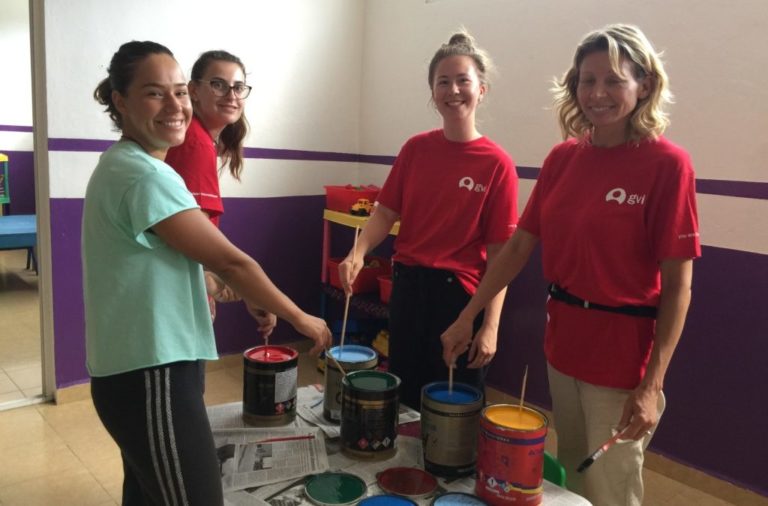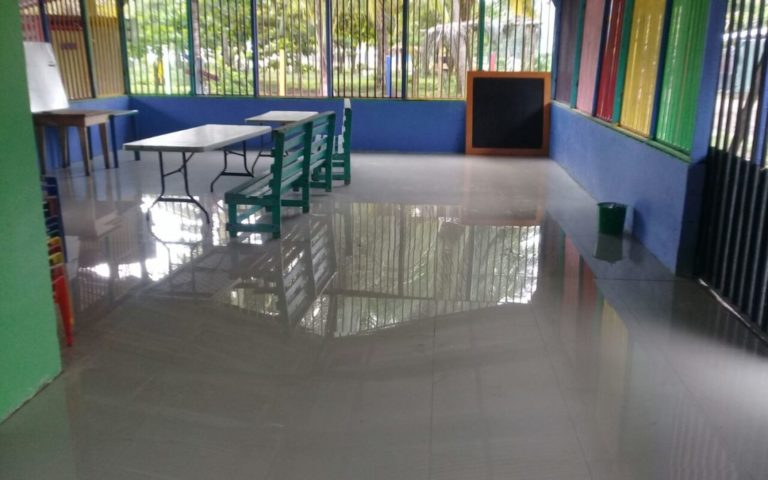At its peak, Cyclone Winston was estimated to have sustained winds of around 230 kmph (143 mph), gusting to 325 kmph (202mph), making it the second strongest hurricane ever recorded around the world.
The path of destruction caused catastrophic damage throughout the nation. Entire villages were flattened with thousands of homes lost and in many of the worst affected areas, 100% of the crops were destroyed having a devastating impact on food security and income generation. There was also extensive damage to infrastructure, which has limited access to safe drinking water and sanitation facilities, damaged electricity supply and cut off remote areas as many roads, bridges and wharfs require significant repair.
A destructive force of this strength brings devastation to any country. However, the heavy reliance rural Fijian communities have on their land makes the challenges they face even more dire. Most rural communities have open water systems, meaning their supply of safe drinking water is now in question. As well as having such strong cultural and spiritual connection to their land, many rural communities rely on generational plantations for the majority of their food supply, trading small amounts for a small income.
The powerful rushes of water that accompanied the cyclone, some up to forty feet high, forced many communities to frantically evacuate to higher ground, leaving their personal possessions behind.These vulnerable communities require extensive emergency aid. Initially, they need to be supplied with food, drinking water, shelter and clothing to be able to start the mammoth task of rebuilding their communities and their lives.
During the initial few days after TC Winston devastated the Dawasamu District, GVI Fiji requested 6185.78 FJD (approx 2000 GBP) of the funds raised to spend on urgent relief items. An initial assessment was carried out at Silana Village, Naisinu Village and Lolomolevu Settlement, in Dawasamu District, Tailevu.
Ahead of the Government rations arriving to the Evacuation Centre at Navunisea District School, GVI was able to provide:
- Basic food items such as flour, rice, lentils and tinned fish.
- Household products to help improve hygiene practices including antibacterial soap, washing detergent, bleach and dish soap.
- Basic wound dressing kits including gauze, antiseptic solution, micropore tape, cotton wool and bandages.
- To prevent further injuries when clearing the debris a portion of the funds were used to purchase 22 pairs of safety boots, 34 sets of gloves and 38 protective masks, as well as basic construction tools including shovels, rakes, pinch bars, tin snips, nails, rope, cable ties and hammers.
- 40 tarpaulins for temporary shelter
- Repairs to a chainsaw that was damaged by the floodwaters.
- A basic radio phone for the evacuation centre to provide a communication line to Suva.
- Water security was highlighted as a priority by the GVI team immediately after the cyclone and funds were also allocated towards reinstalling two 5300L rainwater-harvesting tanks that had been disconnected and damaged during TC Winston.
GVI Fiji is working closely with local authorities on relief assistance and will continue to fill in the gaps as the aid arrives from other International NGO’s, humanitarian agencies and governments.
Currently, Fiji is still under a 60-day state of natural disaster but the focus shifts from the initial response phase and looks towards recovery. GVI Fiji plans to spend remaining funds on longer term projects and initiatives which will help community members rebuild their lives.


